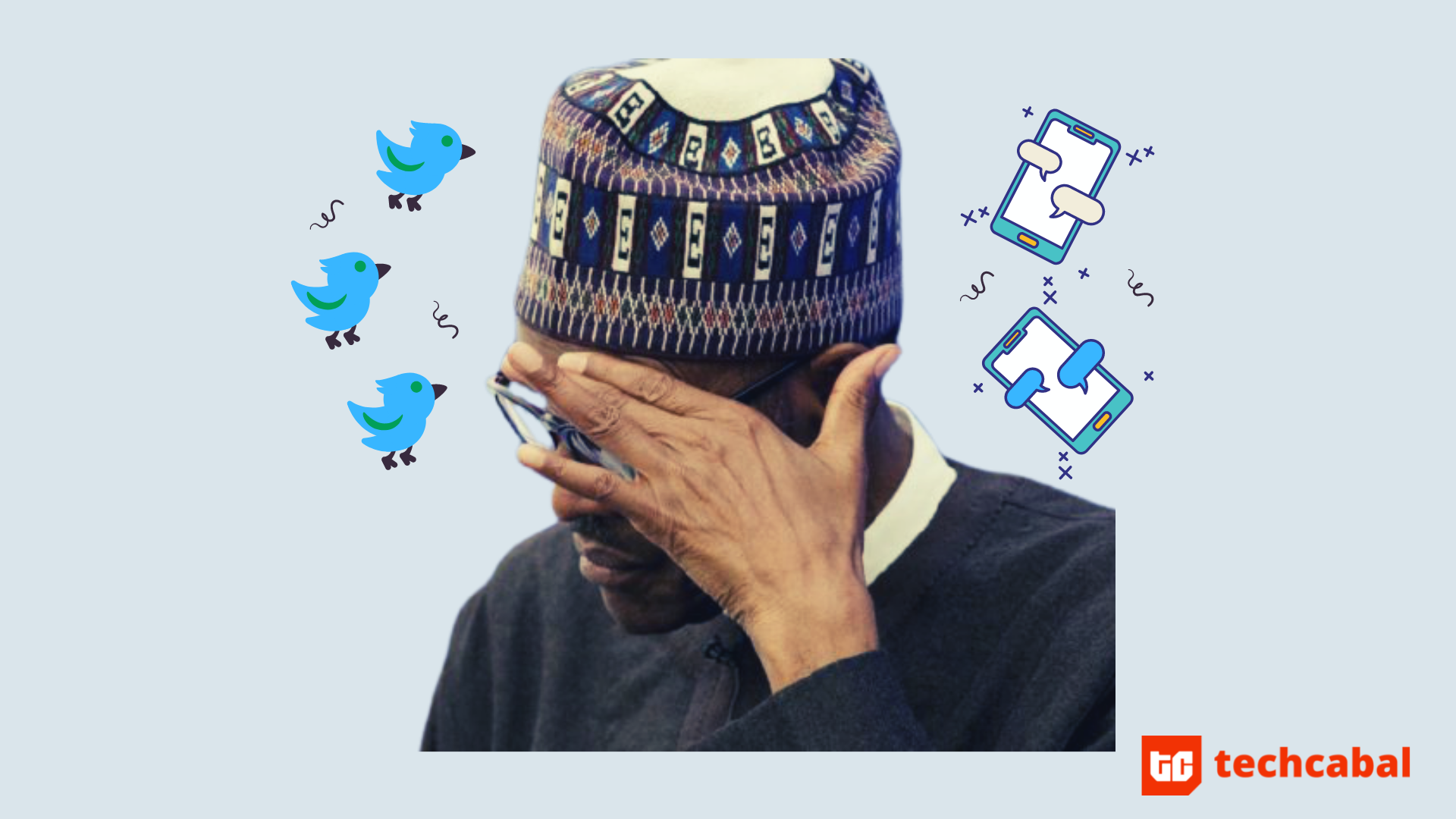A Nigerian government that is overseeing the headquarters of global poverty, sky-high unemployment, rampant extrajudicial killings and an unabating insurgency has decided that its worst problem is its citizens’ use of Twitter, and all media enabled by the internet.
That government, headed by a former military dictator, has rewinded Nigeria to the dark days of press crackdowns and a reign of fear that the world thought the country had moved on from.
In 1984, Muhammadu Buhari’s military government proclaimed Decree 4 to shutter newspapers, radio and television stations. It was a response to open criticism of government officials. It applied retroactively to journalists and citizens, punishable by jail time.
Under the same retired major general’s supposedly democratic reawakening a generation later, the biggest independent platform for citizens to bond over grievances, where they come together to pool medical, legal and educational aid, has come under his hammer.
An infamous ban
As of the morning of Saturday June 5, most people living in Nigeria could no longer access Twitter.
Telecommunications providers like MTN, Airtel and 9Mobile have cut off access to the social media app and website. Some users say they still have access from some internet service providers, but VPNs have become the primary medium to stay on Twitter for most people.
The Association of Licensed Telecommunications Operators of Nigeria (ALTON), a trade body for telcos in Nigeria, confirmed that they have implemented the Twitter ban:
“We wish to confirm that our members have received formal instructions from the Nigerian Communications Commission (NCC), the industry regulator, to suspend access to Twitter.”
“Based on the national interest provision in the Nigerian Communications Act, 2003, and within the license terms under which the industry operates; our members have acted in compliance with the directives of the Nigerian Communications Commission…”
The rest of ALTON’s statement tries to have it both ways: “…we endorse the position of the United Nations that the rights held by people offline must also be protected online. This includes respecting and protecting the rights of all people to communicate, to share information freely and responsibly…”
What does that matter? Actions speak louder than endorsements.
But of course the whole responsibility for Nigeria’s Twitter darkness lies at the top.
Buhari was disciplined on Twitter because his tweet breached sensible rules on threatening violence. In a response that smacks of a thin skin, he has summoned his ostensibly constitutional command of violence.
His ruse of protecting Nigeria from “activities that are capable of undermining Nigeria’s corporate existence” rings hollow to everyone who has followed his government’s faltering attempts at keeping Nigerians safe for six years.
But he did it because, in two elections, Nigerians decided he should. And if he can do this, what more is on the table?
Prepare for the worst
Another look at yesterday’s announcement should raise an ominous feeling.
“The Minister said the Federal Government has also directed the National Broadcasting Commission (NBC) to immediately commence the process of licensing all OTT and social media operations in Nigeria.”
In effect, suspending Twitter is just the beginning, a taste of a very unpleasant menu that could be served soon.
Over-the-top platforms include instant messaging apps like WhatsApp, Telegram, Netflix, Showmax and other streaming platforms. Basically, any media and communication service that uses data provided by internet service providers.
Because they are available over the internet, OTT platforms do not need cable or satellite infrastructure to be available to end users. The Nigerian Broadcasting Commission oversees TV and radio because TV and radio stations rely on national infrastructure and as such need licenses from regulators.
Now, Nigeria wants to license OTTs indirectly through the ISPs that enable them.
It is not yet clear how this will be done. Messaging apps like WhatsApp and Telegram are end-to-end encrypted. Will the government demand access to users’ chats as part of licensing agreements?
Don’t say it is beyond the scope of imagination. By suspending Twitter, Nigeria has stepped into the internet control realm currently championed by China, Iran and India, a fellow country under democracy. Under this protocol, all is fair in love and war against government criticism.
Will Nigeria step up censorship of Netflix by demanding more local content (like South Africa wants to do), or query Showmax for the behaviour of contestants when Big Brother Nigeria returns in a few months?
Again, nothing is off the table. If anything is off the table with this Twitter ban, it is the alternative means of livelihood with which many Nigerians put food on their tables.
Down with the informal economy
“Social media has been at the forefront of income generation for digital marketers,” Wale Adetona, an influencer with 176,000 Twitter followers tells TechCabal.
He believes the Twitter ban will have a “consequential effect on brand communication.”
Generally, we can expect brands to be fine. They will find other ways to reach audiences. But thousands of informal economy workers – food vendors, event planners, etc – who rely on finding customers on their timeline will feel the brunt. They can migrate to Instagram but generating viral marketing content isn’t as easy as it is on Twitter.
If Abuja factored these people in the decision to ban Twitter, it was ultimately decided that the informal part of the digital economy is necessary collateral damage. It was decided that they are dispensable. Maybe they will be referred to join TraderMoni or N-power, as palliatives.
For now, everyone has been marched through the barricades without distinction. As one suppressed people, united by a history of trauma in the Giant of Africa. One nation under Buhari’s democratically reformed gun.





















